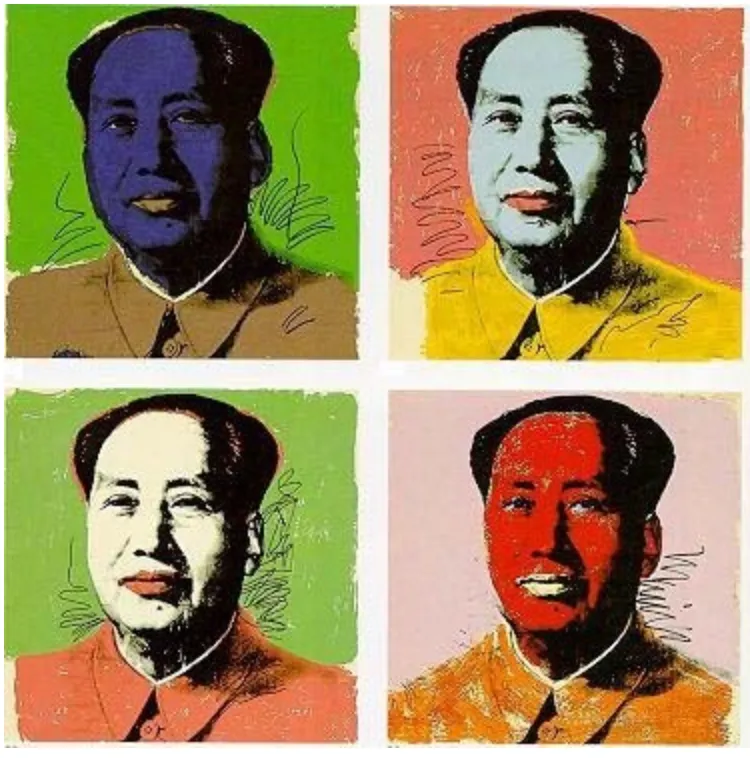Table of Contents
We demand the removal of Confederate statues and Nazi paraphernalia, but admire pop art portraying Mao and memes of Stalin. We call Halloween costumes of Hitler or SS guards bigoted and anti-Semitic, while we laugh at those of of Stalin or the KGB. A Soviet Union-themed Special D is acceptable, while a party honoring Apartheid South Africa, Nazi Germany, or Mussolini's Italy would be condemned immediately.
Why decry some evils of the 20th century but parody others? This year marks the centennial of the communist revolution in Russia. And yet, while denunciations of fascism and racism are abundant on college campuses, jokes about communist dictators abound.
Stanford students are guilty in this criminal comedy. Stanford’s Slavianskii Dom, which aims to generate interest in Slavic studies - is one culprit among many. During the house’s annual communist themed all-campus, “People’s Party,” students drape picnic tables in the backyard with a giant communist flag. Just last month, a row house hosted a U.S.S.R. themed Special D for which students dressed as Soviet officials. Even I have noticed a student who daily dons a khaki hat with a red star, mimicking a Mao-era military uniform.
Mockery of communism but not fascism even permeates Stanford meme culture: the Facebook group “Stanford Memes for Edgy Teens” features numerous satirical Lenin, Stalin and Mao memes, but, Hitler and Mussolini are not included. One post in the group asserted that “commie memes are still allowed if you call the red "cardinal" since thats stanford related.” Even The Guardian noticed Silicon Valley’s affinity for communism in a trivia quiz asking readers to distinguish between quotes from tech CEOs and communist leaders.
Where does this empathy for, or comfort with, communism originate from? Perhaps millennials feel more sympathy for racial and ethnic minorities brutalized by Nazism than for the “bourgeoisie” ostensibly complicit in perpetuating inequality. Alternatively, they might be reacting to McCarthyist persecution of communist sympathizers. Or perhaps we detest fascism because we feel it could resurface, while communism seems long extinct.
None of these questions answer the most important one: why do we insist that there is a fundamental distinction between the results of Nazism and communism in the 20th century? Is there a quintessential difference between race and class hatred? Between the Buchenwald and the Gulag?
When we decry Hitler’s regime but but laugh at satirical depictions of Stalinist, Leninist, and Maoist eras, we fail to fairly examine history. The four aforementioned leaders were all tyrannical totalitarians. Vilifying extremist leaders on the right while parodying those on the left only reflects our political biases. It is estimated that as many as forty-five million Chinese civilians perished under Mao’s Great Leap Forward. Six million Soviet civilians are thought to have been deliberately killed by Stalin’s regime. The total number of noncombatants killed by the Germans during WWII is approximated at eleven million. We cannot ignore these horrifying counts.
Furthermore, not only fascism displays race-based hatred. Soviet and Chinese communists also killed subjects because of their nationality and ethnicity. Indeed, Yale historian Timothy Snyder asserts that it was Stalin, not Hitler, who initiated the first ethnic killing campaigns in interwar Europe. The figures of communist-caused death are striking: demographers estimated that communism has claimed at least 65 million lives around the world since 1917. And yet, communism is still not widely recognized as a failure.
Millions of innocent individuals were starved, worked to death, and murdered under the regimes of Hitler, Stalin and Mao. And yet, the former is banned from mention while the latter are glorified in pop culture.
To French philosopher Aron, progressive intelligentsia “is moralist against one half of the world, but accords to the revolutionary movement an indulgence that is realist in the extreme.” We find Nazism unacceptable today because it harms Holocaust survivors, but praise brutal communist regimes who killed millions of their own citizens. Liberal idealists refuse to uniformly condemn evil because of their political leanings. Political partisanship, however, should not obscure historical understanding. Extremist, leftist regimes have only caused disaster - we now watching Venezuela collapse under a failed socialist regime. If we are to condemn 20th century totalitarianism, we must do so on all sides. The campus left must stop romanticizing and satirizing the murderers of millions.





